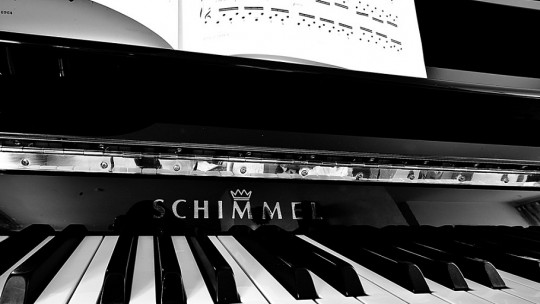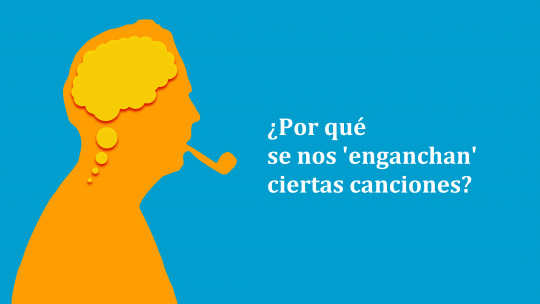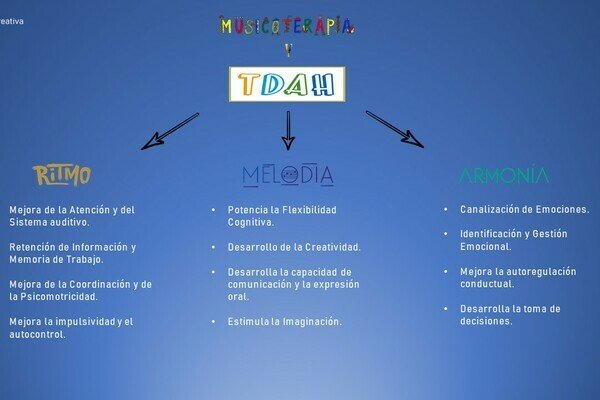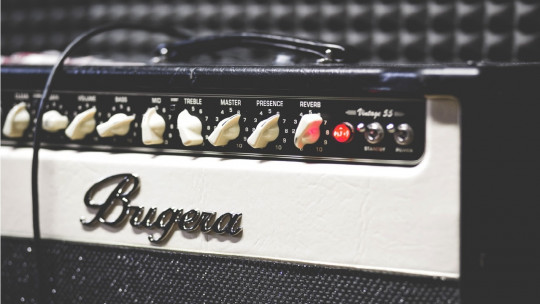Music, that seemingly timeless art, has resonated through the centuries and occupies a unique place in the human experience. From ancient rituals to the contemporary digital age, music has been a constant companion for the vast majority of us, shaping our culture, helping us express specific emotions and marking significant moments.
Music goes beyond mere hearing; It is a phenomenon deeply rooted in the human psyche and neurobiology. As we unravel the threads of its history, we examine how music has woven its narrative through time, influencing cultural identity and conveying the essence of bygone eras. But what is the spark that ignites our innate need to connect with music?
In this article, we are going to seek to answer this issue; why do we listen to music? We will seek to give a neurobiological explanation to our motivation towards music and the reason why it has become such a relevant phenomenon in our lives and day to day lives.
History of music and its cultural impact
To understand why music has managed to become so deeply rooted in our humanity and our culture, it is essential to immerse ourselves in its rich history and its appreciation in societies. From the sacred and spiritual chants of ancient civilizations to contemporary symphonies and viral TikTok hits, music has played (and plays) a vital role in the formation of cultural and social identities.
Music has been, for example, the soundtrack of social movements, protests and revolutions In the 1960s, for example, it became an anthem for the counterculture and the fight for civil rights. Later, in the 80s in Spain, the Madrid movement was created as a space for the country’s most hidden culture that sought, tooth and nail, to free itself from the remains of the Franco dictatorship and its censorship. More recently, music has also influenced us during the COVID-19 pandemic to keep us encouraged and resilient in the face of adversity.
The influence of music to transcend the limits of time and space, being able to connect people from different cultures and generations. Music’s ability to evoke universal emotions has been key to its cultural impact. From the melancholic sadness of a piano adagio to the infectious euphoria of a holiday anthem, music has been a powerful tool for expressing the inexpressible. Through its different genres and styles, music has served as a means to share common human experiences and celebrate diversity
In ancient times, communities gathered around the fire with rudimentary instruments, creating melodies that told stories and strengthened social bonds. As music evolved with civilization, it became an essential element in religious rituals, celebratory ceremonies, and important events. Today, music remains a unifying force that transcends cultural barriers. Digital platforms allow artists from all corners of the world to share their creations, creating a global soundscape. Thus, the history of music is woven into the same fabric of human history, and its cultural influence endures, marking each note with the indelible mark of our shared humanity.
Why do we listen to music? Psychological aspects of this habit
Delving into the human psyche, we discover that the connection between music and our emotions is deep and complex. Music has the unique power to evoke emotional responses, from nostalgia to euphoria, providing a means to express and understand our own emotions.
Psychological research has revealed that Music can modulate mood, affect time perception, and activate brain regions associated with emotions Various musical genres can trigger specific emotional responses, from the calm induced by classical music to the excitement generated by the frenetic rhythm of rock.
The emotional connection to music deepens even further when we consider how music is used in significant moments in life. From songs that accompany happy moments to those that comfort in moments of sadness, music becomes an emotional partner that shares and validates our experiences. Associating different songs and artists with specific emotional moments is a common experience for many people and helps us also stay connected with our realities and with what we want to keep present.
The phenomenon of emotional synchronization, where music reflects and reinforces our own emotions, contributes to the emotional resonance we feel when listening to our favorite songs. Besides, music’s unique ability to trigger the release of neurotransmitters such as dopamine and oxytocin has been the subject of recent research, shedding light on the neurochemical processes underlying the pleasurable musical experience.
The diversity of music reflects the complexity of human emotions, providing a wide spectrum of emotional expression. From the subtlety of a ballad to the intensity of a guitar solo, music becomes a universal language that transcends linguistic and cultural barriers. Ultimately, the psychological aspects of music reveal that our affinity for this art form goes beyond mere aesthetic appreciation. Music becomes a mirror of our emotions, a force that gives voice to what is often ineffable, and invites us to explore the mysteries of our own being through its notes and chords.
Neurobiology of music
By delving into the tangle of neural connections that music awakens in our brain, we discover a fascinating spectacle of neurobiological activity. Recent research, such as that presented in the referenced article, sheds light on how the brain processes and responds to music, revealing a symphony of interactions between specialized brain regions.
When we immerse ourselves in music, the brain becomes a scene of electrical and chemical activity. Primary auditory areas interpret frequencies and rhythmic patterns, while emotional regions, such as the amygdala and limbic system, are responsible for emotional response. Dopamine, known as the pleasure neurotransmitter, also plays a crucial role, being released during pleasurable musical experiences.
The neurochemical cocktail released by music not only intensifies pleasure, but also establishes deep links between music and memory Songs can become emotional anchors, transporting us to specific moments in the past with only familiar chords. This connection between music, emotion and memory underscores music’s unique ability to weave itself into the fabric of our lives.
Studies have also revealed that music can modulate brain wave activity, affecting concentration, alertness, and cognitive processing. In therapeutic settings, music is used to treat conditions such as stress, anxiety and depression, highlighting its benefits beyond mere entertainment.
It is fascinating to observe how music activates brain networks that go beyond those dedicated to hearing. Brain plasticity manifests in the brain’s ability to adapt and change in response to musical experience, providing new insights into the intimate connection between music and the mind. In short, the neurobiology of music offers us an amazing spectacle of the interaction between art and science in our brain. From sensory perception to emotional response and brain plasticity, music triggers complex processes that reveal the depth of its impact on the human experience.
The impact of music on mental health
Beyond its influence on perception and pleasure, music emerges as a valuable ally in the field of mental health. Music therapy, supported by a growing base of scientific evidence, has emerged as an effective therapeutic tool for addressing various psychological conditions.
Music acts as a bridge to emotional expression in therapy, allowing people to communicate feelings that may be difficult to articulate verbally. In clinical settings, Music is used to relieve stress, reduce anxiety and promote relaxation In the treatment of disorders such as depression, music becomes a companion that can inspire hope and motivation. Meaningful lyrics and emotional melodies can resonate deeply, offering comfort and validation to those facing emotional challenges.
Music not only serves as a form of therapeutic intervention, but is also integrated into mental wellness programs. From mood-enhancing playlists to mindfulness practices with music, music therapy is expanding as a versatile resource that strikes the chords of mental health, offering harmony on the journey toward emotional well-being.
Conclusions
In the fascinating journey through music, we discover that it goes beyond being a simple listening pleasure; It is a universal language that speaks to our emotions and connects our experiences. From cultural history to neurobiology, music is revealed as an intricate phenomenon that impacts our mind, our memory, and our mental health. In every note, we find music’s powerful ability to enrich our lives and nourish our shared humanity.









